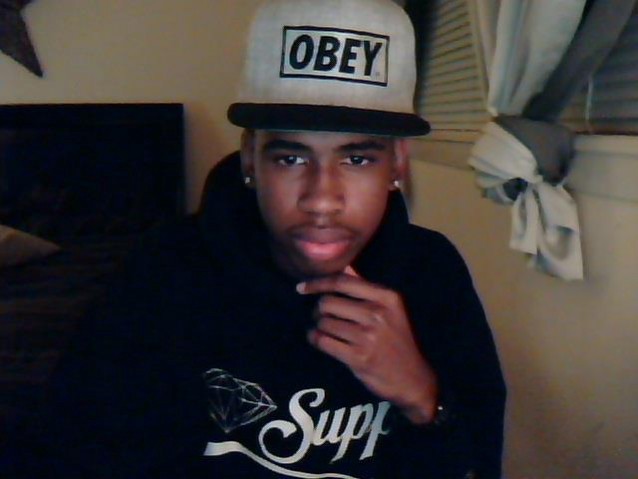When a shackled Kendrick Lamar walked on the Grammys stage with a chain gang in tow, everyone knew he was getting ready to make an explosive statement about violence against black bodies. And he did just that, performing the “Blacker the Berry” — while surrounded by men in cages — and then launching into the hit single-turned-black-power-anthem “Alright.”
But the most powerful part of the performance was, arguably, the shoutout to Trayvon Martin, who was killed nearly four years ago to the day. During a freestyle for the ages, King Kendrick rapped:
“I got to prove, on February 26 I lost my life too. It’s like I’m here in a dark dream, nightmare, hearing screams recorded. Saying they sound distorted but I know who it was. That was me yelling for help when he drowned in his blood…And for our community do you know what this does? Add to a trail of hatred, 2012 was taken, for the world to see, set us back another 400 years, this is modern-day slavery…”
Lamar likely invoked Martin’s name because of the looming anniversary of his death and because the teen became one of the faces of the Black Lives Matter movement. But Lamar’s loaded set was also powerful because he just as easily could’ve been talking about another black teenager who was slain in Florida in 2012: Jordan Davis, who would’ve turned 21 today.
Like Martin, Davis was 17 years old when he was shot by Michael Dunn. Martin was murdered for being black, and Davis was killed for listening to rap — the very music that Lamar has used to tell profound stories about anti-black violence.

In November 2012, Davis was listening to music in a car with friends, when Dunn drove up and asked them to turn down the volume. After a verbal back and forth, Dunn pulled out a gun and fired ten rounds.
During the subsequent murder trial, Dunn claimed he shot in self-defense and referred to the music Davis was playing as “rap crap.” He repeatedly used the word “thug” to describe the victim. And after the trial came to an end, a juror told ABC News that Dunn essentially linked hip hop to Davis’ penchant for violence. The type of people who listen to “rap crap,” Dunn reasoned, are the kinds of people who commit heinous acts.
Ultimately, it wasn’t just Dunn on trial. Hip hop was too. In fact, the genre has been on trial for quite some time, with prosecutors arguing that violent rap lyrics are indicative of violent motives and behavior. No other music genre has been subject to so much scrutiny, even though rock, blues, and indie music have their fair share of homicidal messages. The glaring difference is that hip hop is predominately created and consumed by black people.
For Dunn, the loud rap music was a symbol of Davis’ “thuggishness” and blackness and propensity for violence. Hip hop was a sign of danger. Hip hop was a culprit. Hip hop was used to justify the murder of an innocent black boy.
On Sunday night, Lamar countered that unfounded narrative in the most poetic way. Sure, he was specifically talking about Martin. But on the eve of Davis’ birthday, Lamar used hip hop to articulate a 400-year truth: for many centuries, African-Americans have been victim to systemic violence — whether it’s in the form of mass incarceration or the murders of innocent boys for being black.
Lamar beautifully used the very art form that many white people associate with black violence, to make a bold statement: “We will not be silenced.”
He forced the world to remember Martin and, coincidentally, honored Davis at the same time.
Watch it here:
